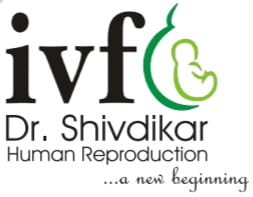+918048035722

This is your website preview.
Currently it only shows your basic business info. Start adding relevant business details such as description, images and products or services to gain your customers attention by using Boost 360 android app / iOS App / web portal.
Description
Embryo Adoption: A Comprehensive Overview Embryo adoption is a process in which an adoptive family receives frozen embryos from another couple or individual to implant and carry the pregnancy to term. The embryos typically come from fertility treatments where the original parents created more embryos than needed. Instead of discarding or keeping them frozen indefinitely, these embryos are offered to individuals or couples who are unable to conceive on their own. How Embryo Adoption Works 1️⃣ Choosing an Embryo Donation Agency Embryo adoption usually occurs through embryo donation agencies or fertility clinics that facilitate the donation and transfer process. Agencies will match intended parents with embryo donors, either anonymously or known (open adoption). 2️⃣ Screening Process The intended parents will undergo a medical and psychological screening to ensure they are physically and emotionally prepared for pregnancy. This may include: A health assessment to ensure the uterine lining is ready to support embryo implantation. Psychological evaluations to ensure the parents are prepared for the emotional aspects of embryo adoption. 3️⃣ Embryo Transfer The adopted embryos are thawed and the woman’s uterus is prepared using hormonal treatments (e.g., estrogen and progesterone) to facilitate implantation. The embryos are then transferred into the uterus in a procedure similar to IVF. After about 10–14 days, a blood test (beta-hCG) confirms whether the implantation has occurred and the pregnancy is viable. 4️⃣ Pregnancy & Delivery If successful, the adoptive mother will proceed with prenatal care just like any other pregnancy. After birth, the adoptive parents are legally recognized as the child’s parents, assuming all legal documentation is in place. Why Do People Choose Embryo Adoption? 1️⃣ Infertility Treatment For individuals or couples who are struggling with infertility and cannot conceive using their own eggs or sperm, embryo adoption offers an alternative. It is also an option for people who have failed to conceive with IVF using their own embryos. 2️⃣ For Same-Sex Couples or Single Parents by Choice Same-sex couples or individuals who are not able to produce viable embryos on their own might choose embryo adoption using donor eggs or donor sperm. This allows them to have a biological connection through one of the parents (the sperm or egg donor) and provides a way to grow their family. 3️⃣ Genetic Health Concerns Some individuals may choose embryo adoption if they are at risk of passing on genetic disorders and do not want to use their own eggs or sperm. In this case, they might opt for embryos from healthy donors who have been screened for genetic conditions. Benefits of Embryo Adoption ✔ Higher Success Rates: Because embryos are frozen at a later stage (typically blastocyst stage), they are more likely to successfully implant when transferred, offering higher chances of a viable pregnancy compared to using fresh embryos. ✔ Reduced Emotional and Legal Complications: Embryo adoption can be less complicated than traditional adoption because it is a genetic connection to one of the parents (either the egg or sperm donor), and legal parentage is usually clear after the birth. ✔ Ethical Options: Embryo adoption allows for embryo donation without the emotional weight of giving up the child after birth, as the adoption process occurs at the embryo stage. ✔ Cost-Effective: It may be less expensive than undergoing a full IVF cycle with egg/sperm donation, especially for individuals or couples who do not have eggs or sperm available for their own IVF. Considerations and Challenges ❌ Emotional Challenges: For some parents, the idea of raising a child whose biological origins are not fully known (especially when using anonymous donations) can present emotional challenges, including concerns about identity, connection, and attachment. ❌ Legal Complications: The legal process surrounding embryo adoption can vary by country and region. It’s important to ensure all legal documentation is in place, including establishing parental rights after the child’s birth. ❌ Frozen Embryo Quality: The success of embryo adoption depends on the quality of the frozen embryos being transferred. While the chance of successful pregnancy with blastocyst embryos is higher, there is always the risk that the embryos may not survive thawing or may not implant. ❌ Matching Process: Depending on the adoption agency, it can sometimes take time to find a match that suits the parents' needs and desires, especially in cases of known donations or specific requirements (e.g., race, ethnicity, health history). Is Embryo Adoption Right for You? Embryo adoption may be the right choice for individuals or couples looking to build a family without undergoing IVF with their own genetic material. It offers a way to experience pregnancy and childbirth while addressing fertility challenges. It can also be a compassionate option for those seeking to help couples who no longer wish to keep their frozen embryos. If you’re considering embryo adoption, the best first step is to consult with a fertility clinic or an adoption agency specializing in embryo adoption to explore the process and match with a donor. Would you like more detailed information on the process, legal aspects, or success rates of embryo adoption? 😊

